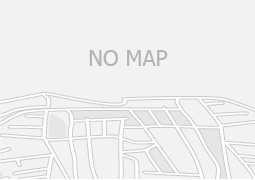ผู้สมัครงาน

เลือกช่องทางติดต่อ
เกี่ยวกับเรา
Since 1984, AMI provides medical and sanitary aid to Burmese ethnic minorities through direct support in some medical facilities but mainly by training the medical staff in charge of them.
Due to the intensification of the fights and the important loss of the Karen army, the population started to flee massively to Thailand in 1994 and since then, keeps growing the figures on the refugee camps along Thai-Burmese Border. AMI joined the population on its exodus in 1995, and operates since then in a few camps. Nowadays, AMI is present in the three camps of Tak Province. It provides curative medical care in Nupoe, Umpiem refugee camps and curative and preventive care as well as water supply in Maela camp through an active support to the medical system in place and contributes to maintain a good level of practice of the medical staff with constant training. AMI also provides 6500 readers with a health distance learning magazine: the Health Messenger and published 2 educational magazines for Kids (children from primary school) and Juniors (children from secondary school) in all the camps and migrant communities.
Since the 2nd semester in 2005, the opportunity to be ressettled in a third country has been offered to a much larger proportion of the refugees. Consequently, a majority of the health workers of the camps are immigrating to a third country. As the health services depend on the health workers, it become crucial and urgent to train new medics. The duration of training of medics used to be 18 months.
This training will concern students selected from the 3 camps. The theoric training will most probably take place in Maela camp. It will be conducted in English and Burmese. Training will be completed by practical sessions in the various health structures of the 3 camps (total of 5 OPD and 3 IPD). Theorical and practical evaluation should validate the training.'Since 1984, AMI provides medical and sanitary aid to Burmese ethnic minorities through direct support in some medical facilities but mainly by training the medical staff in charge of them.
Due to the intensification of the fights and the important loss of the Karen army, the population started to flee massively to Thailand in 1994 and since then, keeps growing the figures on the refugee camps along Thai-Burmese Border. AMI joined the population on its exodus in 1995, and operates since then in a few camps. Nowadays, AMI is present in the three camps of Tak Province. It provides curative medical care in Nupoe, Umpiem refugee camps and curative and preventive care as well as water supply in Maela camp through an active support to the medical system in place and contributes to maintain a good level of practice of the medical staff with constant training. AMI also provides 6500 readers with a health distance learning magazine: the Health Messenger and published 2 educational magazines for Kids (children from primary school) and Juniors (children from secondary school) in all the camps and migrant communities.
Since the 2nd semester in 2005, the opportunity to be ressettled in a third country has been offered to a much larger proportion of the refugees. Consequently, a majority of the health workers of the camps are immigrating to a third country. As the health services depend on the health workers, it become crucial and urgent to train new medics. The duration of training of medics used to be 18 months.
This training will concern students selected from the 3 camps. The theoric training will most probably take place in Maela camp. It will be conducted in English and Burmese. Training will be completed by practical sessions in the various health structures of the 3 camps (total of 5 OPD and 3 IPD). Theorical and practical evaluation should validate the training.
ข้อมูลติดต่อ
BURMESE REFUGEE ASSISTANCE IN THAILAND
BURMESEREFUGEEASSISTANCEINTHAILAND AMI Maesot office 21/22-26 Mae Sot - Mae Toa Road, Mae Sot District ตำบล อำเภอ จังหวัดตาก 63110 ประเทศไทย
 โทร. -
โทร. - 
การเดินทาง
หางานตามสาขาอาชีพ
JOBBKK.COM © สงวนลิขสิทธิ์ All Right Reserved